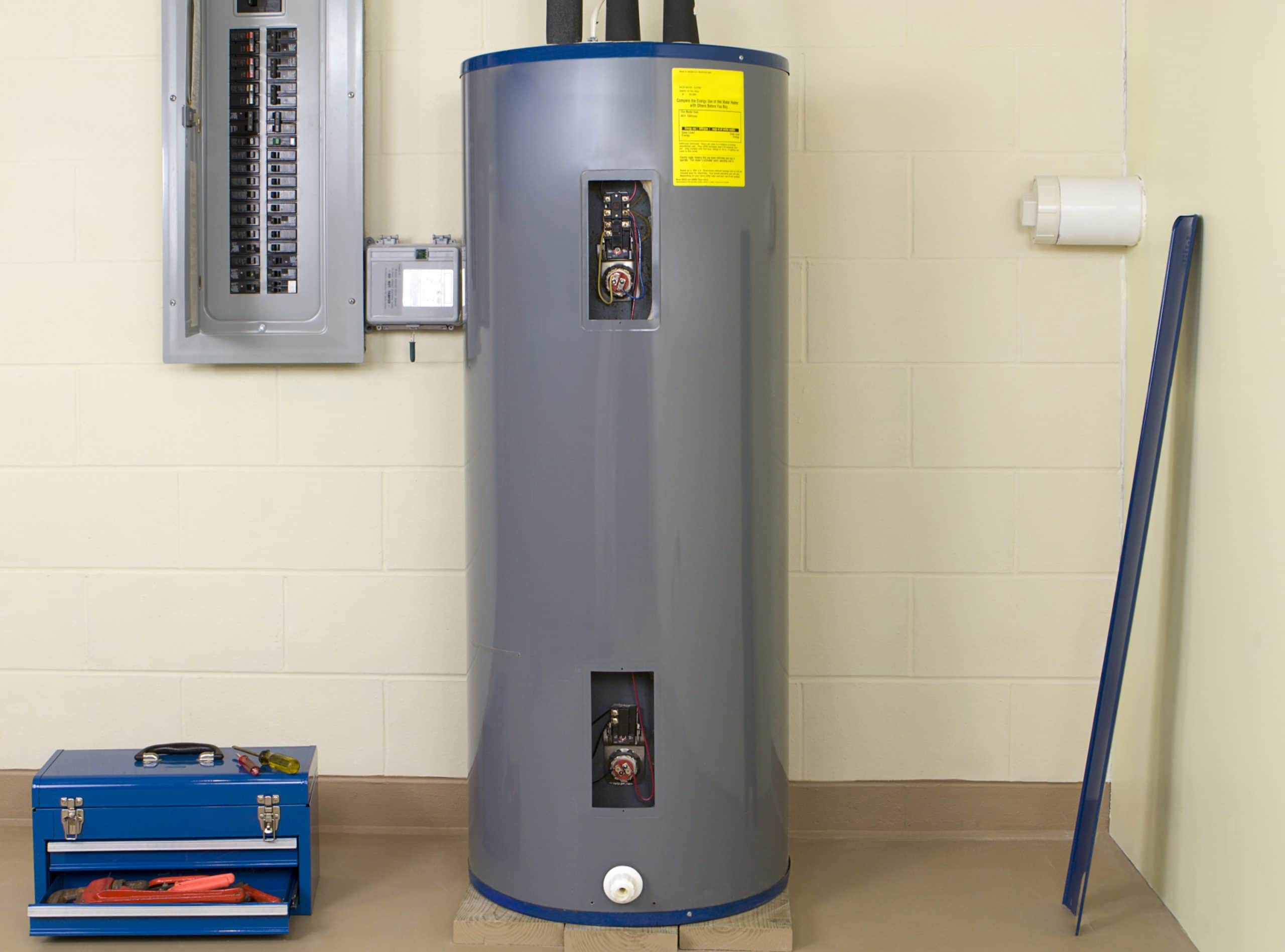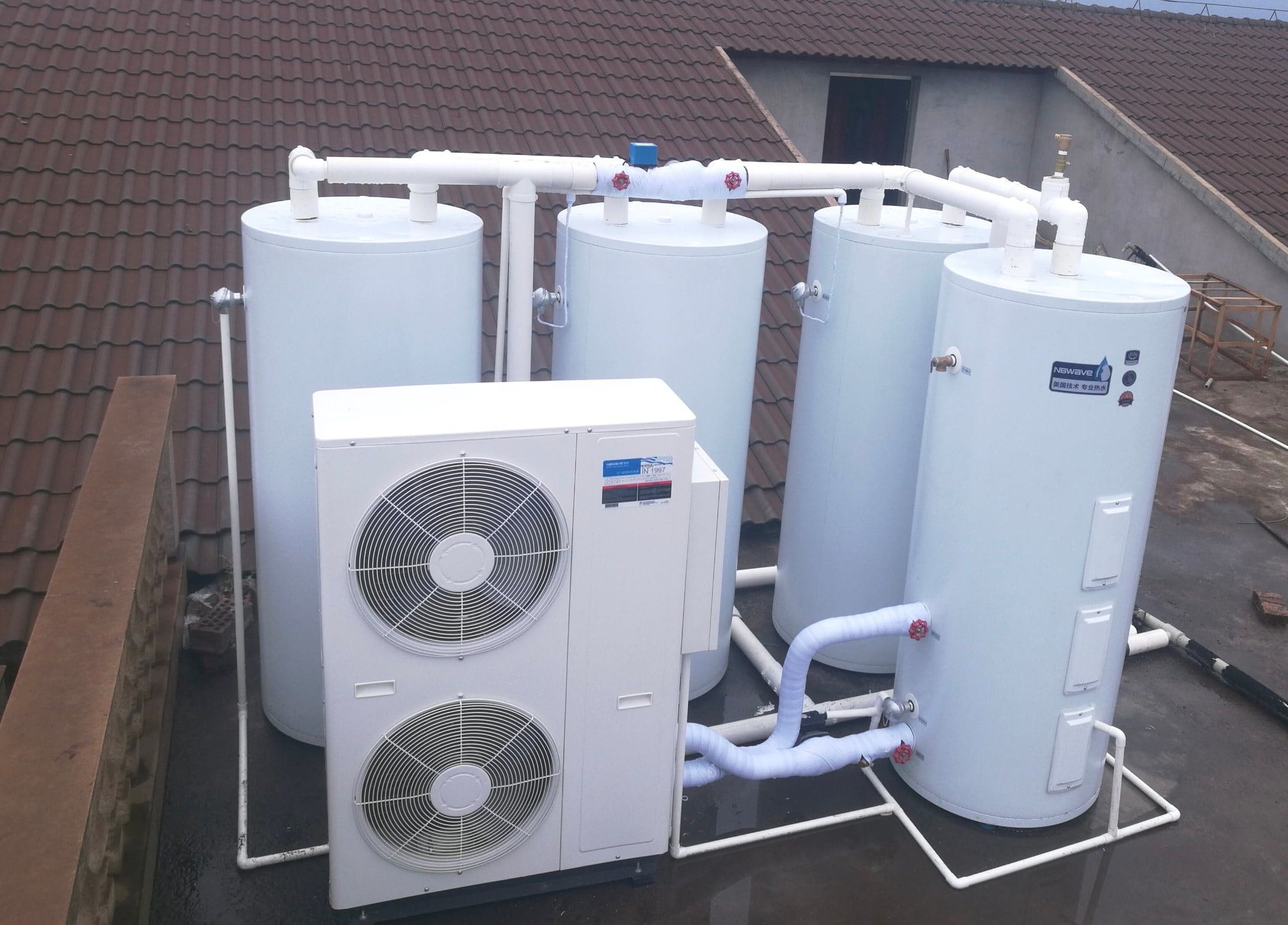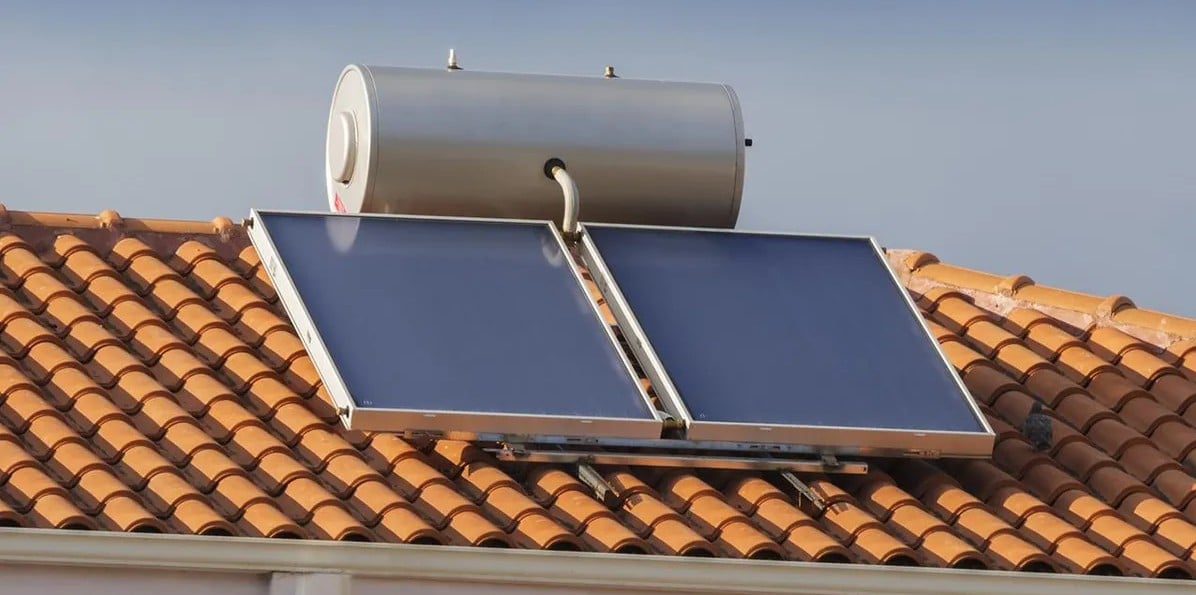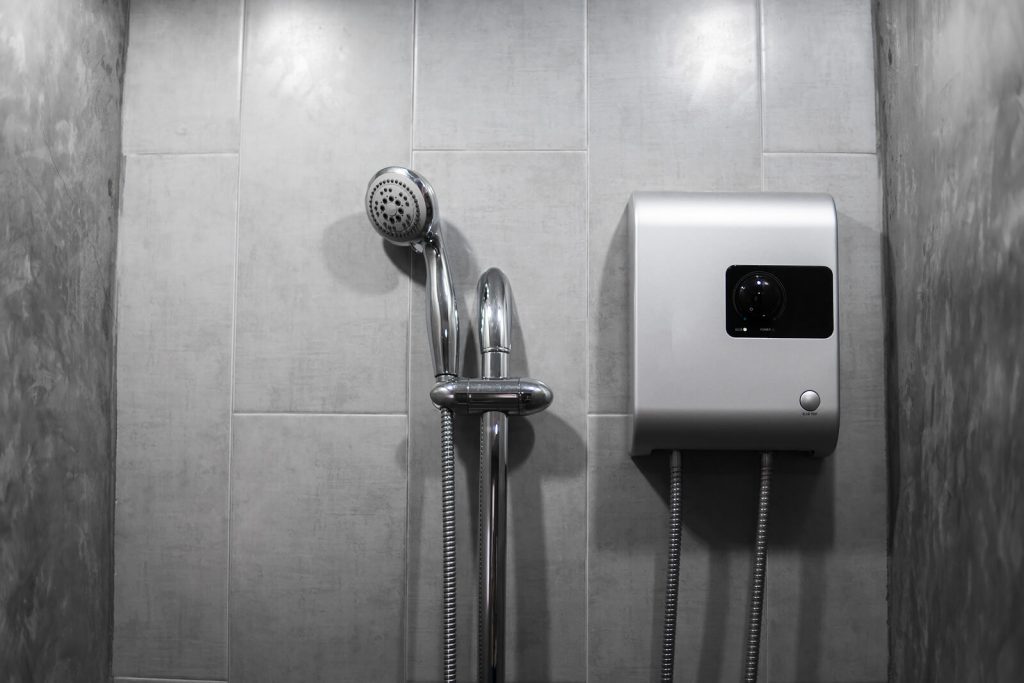Nothing feels better than a warm shower after shoveling all that snow from your driveway. But, what if only cold water comes out when you crack in hot water?
Water heaters can last anywhere from 5 to 12 years. When it’s time to replace your water heater at home, you’ll realize there are plenty of different options for you to choose from.
With so many options out there, you need to know the different types of water heaters to help you make an informed decision.
We’ll look at the top 5 types of water heaters available for home use. Learning about the various types, pros, and cons will help you understand which one is better for your home.
Let’s get started.
Conventional Storage Tank Water Heater

A conventional water heater is the most common heater for homes. They comprise a sizable insulated tank where water is stored and then heated. The capacity of the water heater determines the water available for use.
Pros
- Affordable – Unless you spend on a smart water heater, you will pay less upfront cost for your water heater than you would for other types of heaters.
- Lower Installation Costs – Apart from the low initial cost, storage water heaters are inexpensive and easy to install. In fact, it is much lower than the installation cost of other types of heaters. The installation depends on your house’s plan, where the plumbing is needed, and electrical configuration.
- Efficient in All Climates – These heaters work perfectly in all types of climates. While tankless and solar water heaters need specific conditions for optimal performance, these deliver seamless performance.
Cons
- Space Hog – Storage water heaters are designed to accommodate a large amount of water. Thus, these are usually larger in size and will need space for installation.
- Increased Use of Energy – Conventional water heaters need a constant energy flow to maintain the water temperature.
- Prone to Water Damage – Since these heaters have water, they are prone to rust and corrosion. They also require routine maintenance checks to maintain their functionality.
Tankless Water Heater

As the name suggests, a tankless water heater produces hot water instantly using super-heated coils. When you turn it on, these coils are filled with water and offer a limitless amount of hot water for your home.
Pros
- Provide Instant Hot Water – Instead of waiting for cool water to turn hot, tankless water heaters offer instant hot water flow on demand. Since they heat water only when needed, they need less energy overall compared to conventional heaters.
- Space Saving – Tankless water heaters are compact in size as they do not need a water reservoir of water. They can be easily mounted on the wall or placed in any corner of the house.
- Power Saving – Installing a tankless water heater will lower your yearly expenses. These not only need less energy but also require less maintenance.
Cons
- Higher Upfront Cost – Tankless water heaters are quite costly. Even the least expensive ones can start from $1,000. If you are on a tight budget, you may have to wait a bit longer to make up for the initial cost.
- Limited Hot Water Supply – A tankless water heater is perfect for small families. But, for large families, the hot water supply may run out due to high demand.
- No Additional Perks – Tankless water heaters are expensive but do not offer a lot of impressive benefits compared to cheaper alternatives.
Heat Pump Water Heater

Also called hybrid water heaters, heat pump water heaters can work without generating heat. Using heat from the ground and the air, electricity moves the heat from one point to another.
Pros
- Huge Money Saving – Heat pump water heaters use very little energy than other conventional heaters. While they cost a little higher than the tankless models, you start to see savings at a much faster rate.
- Long Term Efficiency – Heat pump water heaters are excellent alternatives to fuel and oil heating systems. For those looking for a water heater that is efficient and cost-effective, a heat pump water heater is a great choice.
- Less Maintenance – Heat pump systems require little to no maintenance. They only need professional checks once a year, helping you save on expensive labor costs.
Cons
- Low Life Span – Hybrid water heaters typically last for about ten years compared to tankless and solar heaters that can easily last for approximately 20 years.
- Space Requirements – These water heaters need a large amount of space to operate efficiently and safely.
- Carbon Neutral – They do not generate electricity of their own and are dependent on it to function well. If you are looking to reduce your carbon footprint, this might not be your best option.
Solar Powered Water Heater

Solar water heaters use the heat from the sun to heat water. The heaters work by using roof-mounted panels that transfer energy to the water tank then it is heated.
Pros
- Environmental-Friendly – Solar-powered water heaters are very energy efficient. Since they are dependent only on sunshine, they are environmentally friendly.
- Lower Utility Bills – Apart from being environmentally friendly, they are extremely cost-effective in the long run. While the initial installation cost may be a little high, you can reduce the high electricity and water bills when you make the switch.
- Eligible for Tax Credit – You can earn tax credits using solar water heaters. These can help bring down some of the installation costs.
Cons
- Usable Only in Certain Climate – If you live in an area with more rainy days than sunny ones, a solar heater will not be as beneficial as you would have thought. While you can still harness solar power during gray days, it will have an impact on your heater’s performance.
- High Cost of Installation – The high installation cost is one of the main downsides of solar water heaters. However, different financing programs make the payment process much easier.
- Rooftop Space Requirement – The more energy you need from the solar system, the more solar panels you’ll need. It means you need more roof space to dedicate towards installing solar panels.
Condensing Water Heater
Condensing water heaters are like conventional heating systems, but their working is different. They capture the hot exhaust gases coming from the duct and direct them to a heat exchanger inside the heater tank.
Pros
- Eco-Friendly – Condensing water heaters help you cut down energy by over 30% compared to other heater types. It helps to reduce the carbon footprint.
- Cheaper to Operate – Condensing is highly efficient and helps you reduce your energy bills to a great extent.
- Efficiency – Condensing water heaters can quickly produce hot water, like tankless water heaters. The tank starts to heat the water as soon as it starts to fill up.
Cons
- Expensive – The newer condensing water heaters are very costly, and the additional installation cost can push it much higher.
- Huge Size – These water heaters can accommodate huge water capacities as they are designed for heavy-duty water usage. This capacity is reflected in the large size of the heater that needs a bigger space.
- Difficult to reconfigure – Switching to a new condensing water heater is quite complicated. It will need a reconfiguration that can add to your cost.
Final Verdict
There are many different factors to consider when selecting the best water heater for your home. With a better understanding of the various options available, you can be sure to make the right decision. Do you need help with heating? Contact us for professional heating services.



